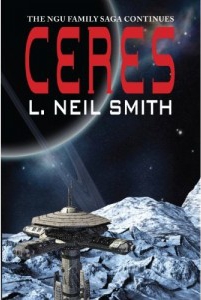

Ceres, a finalist for the 2011 Prometheus Award for best libertarian novel, is the latest opus from noted libertarian author L. Neil Smith, best known for The Probability Broach. As you would expect from Mr. Smith, Ceres is a treasure trove for the liberty lover, a work that could only come from an uncompromising libertarian. Nearly every page has some sound libertarian principle or perhaps a new twist on libertarian ideas that the reader may not have considered before. For instance, we know that government is coercion, an institution organized around this principle, but have we considered the role of agriculture in the development of the State? Was it perhaps our settling down into permanent communities that allowed for the contraction of that particular disease? Right or wrong, it’s food for thought and worth considering. Ceres is filled with such things.
The story takes place in the 22nd century and follows the lives of characters connected in some way to the terraforming of Ceres, the planetoid – now called a dwarf planet — and largest object in the main asteroid belt. Most of the protagonists belong to the Ngu family, and those that don’t are close friends. Llyra Ayn Ngu is a figure skater born on Pallas, an object in the asteroid belt even smaller than Ceres. She goes to Ceres to acclimate her body to its greater gravity, and from there moves to the Moon, and thence to Mars and finally to Earth, where she dreams of ice skating success.
The different sections of the book are named after the gravity of each body, whether it’s one tenth gee, one sixth, one third or one gee. Given this, we might call Llyra the main character, although her brother Wilson gets just as much attention. Nevertheless, Llyra’s goal and struggle to achieve it are the only constants in the novel, present from the opening chapter to the end. The rest concerns the various interests of the Ngu family and friends, often when in conflict with the environmentalists who seek to stop human expansion into space and the sullying of the environment as they see it.
It is beyond dispute that L. Neil Smith is a dedicated libertarian. He has spent many hours of his life pouring himself into prose, seeking to spread the libertarian ethic and philosophy for the betterment of mankind. However, just as, in a debate, a libertarian stands a better chance of convincing if the other party genuinely likes him, so too does a book stand a better chance of convincing in proportion to how much it charms the reader. One might make a few suggestions in the interest of getting the most out of Ceres.
[continue reading…]
Help Promote Prometheus Unbound by Sharing this Post
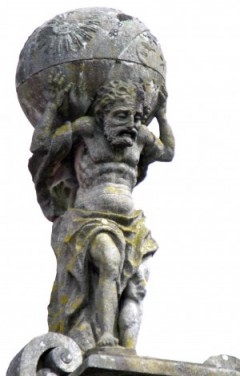
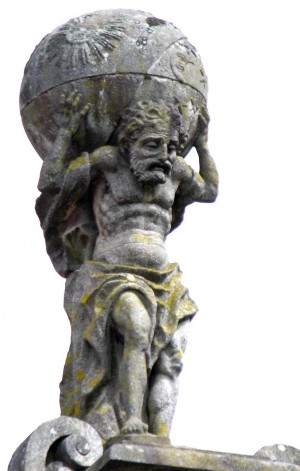
I’ve got some ideas about what would happen after the end of Atlas Shrugged. I could just describe the basic plot here for you. I could say, “I think that after the world economy crashes and the governments collapse, the heroes emerge and help to rebuild. Dagny and Galt have a child, who ends up being a Randian Kwisatz Haderach, named Sarah. Then they get divorced when Dagny cheats on Galt with Eddie Willers. Sarah ends up running for President of a scaled back federal government. And there are lots of interesting sub-plots, such as [x, y, z].”
I could use this technique to highlight how some of Rand’s ideas were flawed, in my view, or builds on or extends them into other areas.
But I thought actually writing it up in novel-form might be a different way to present these ideas. So I spent the last four years on this. The novel is a doozy — 450 pages of great literature. My friends who’ve seen it think it’s amazing.
But I could not publish it. Rand’s estate would surely sue me for copyright infringement.
[continue reading…]
Help Promote Prometheus Unbound by Sharing this Post
That was to be the subtitle for my chapter in Open Court’s recent addition to their Popular Culture and Philosophy series, Transformers and Philosophy: More Than Meets the Mind. Alas, no subtitles made it into the book.
I have official permission to provide a pdf copy of my chapter, “Freedom Is the Right of All Sentient Beings. Technically, I don’t think I really need legal permission; I don’t recall signing over to Open Court the copyright that federal law automatically vests in me as the author. Anyway, download it from that link and enjoy!
The chapter title comes from a quote by Optimus Prime in the first of the recent live action movies (see my review). The chapter itself is kind of a condensed and lite version of the Aristotelian-liberal theory of virtue ethics and natural rights explained in more detail in my dissertation, applied to the transformers and to artificial intelligences more generally.
~*~
Cross-posted at Is-Ought GAP.
Help Promote Prometheus Unbound by Sharing this Post
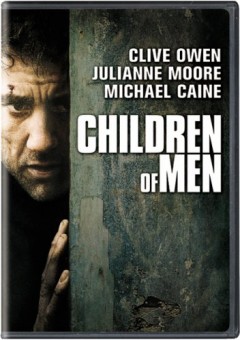
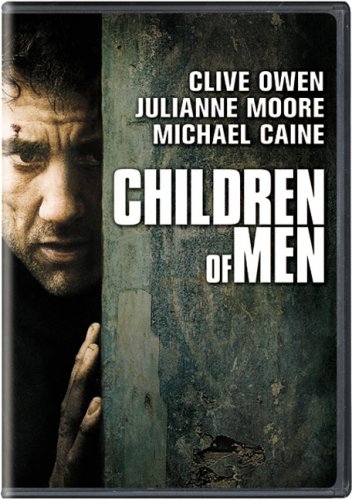 [Warning: Minor, vague spoiler in last sentence of 3rd paragraph.]
[Warning: Minor, vague spoiler in last sentence of 3rd paragraph.]
Children of Men is an interesting dystopian film set in a near-future fascist Britain. The country has traded freedom for “security,” has closed its borders to immigrants and systematically rounds them up into concentration camps and deports or exterminates them. It is a world beset by terrorism, of the Islamic fundamentalist variety and others.
The premise of the movie, however, is such a stretch that it makes it hard for one to maintain adequate suspension of disbelief. Suddenly and inexplicably over a very short span of time (a few years maybe?) the entire female sex of the human race becomes infertile. Then, just as suddenly and inexplicably, a group of resistance fighters discovers a pregnant woman. Much of the movie is their attempt to smuggle her out of the country.
Though the premise is rather far-fetched, the movie makes interesting use of it for social analysis. With no possibility of children, the extinction of the human race is not far off. Hope for the future seems lost. What effect will this loss of hope have on individuals and on society as a whole? The movie does a good job of dramatizing this on both levels.
[continue reading…]
Help Promote Prometheus Unbound by Sharing this Post













